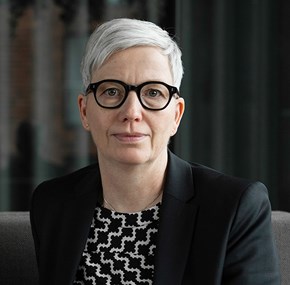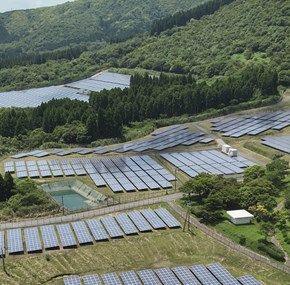The IKEA-effect: How big companies are driving demand for renewable energy
Corporate demand for renewable energy will only continue to rise in the future. To understand what is driving the change, you need only look at IKEA. The global furniture retailer is rapidly becoming a corporate activist in the area of sustainability. One of the first milestones is IKEA’s own energy consumption, and a company the size of IKEA has the power to increase global demand for renewable energy, explains our analyst.
In many ways, being the world’s most well-known retail furniture brand seems at odds with sustainability. IKEA makes well-designed and inexpensive furniture available to 830 million customers annually (a staggering 2.3 billion customers shop in IKEA online store), and this naturally requires a significant consumption of energy and natural resources.
But perhaps it is directly as a result of IKEA’s massive environmental footprint that the retail furniture chain has committed itself to one of the world’s most ambitious sustainability strategies. Published in June 2018, IKEA’s sustainability strategy “People & Planet Positive” sets out the company’s ambitions to be not just “less bad” or neutral in its use of energy and natural resources - but to be a net positive force.
- It is hard not to overestimate the significance of IKEA’s sustainability strategy. A company of that size has more power than many national governments, says Teresa Conde Muñoz, Transaction Specialist at Obton.
Consumers are adding to the pressure
To understand why companies like IKEA are making significant changes to the way they do business, it is worth looking at the changing attitudes among consumers.
- There is a sense of urgency in the general public about climate change, says Teresa Conde Muñoz, and points to a recent survey published by the European Investment Bank (EIB) and YouGov. The study showed that 78% of EU citizens are concerned or alarmed by climate change (63% in US and 65% in China).
- Obviously, people are looking to their governments to act, but increasingly consumers also expect companies to play a role in tackling climate change, says Teresa Conde Muñoz. The EIB study also showed that 67% of Europeans say that the impact of a product on climate change is very or fairly important when purchasing items.
- Companies are increasingly coming under pressure from consumers and investors to reduce their carbon footprint, says Teresa Conde Muñoz. Her company, Obton, is experiencing increased interest in solar energy from both large and smaller companies across Europe
Renewable energy goal fast approaching
IKEA is one of many companies showing how corporations can lead the way on climate change.
The company’s overall ambition is to “become climate positive and regenerate resources while growing the IKEA business” by 2030. One of the first goals of the strategy is fast approaching: To cover 100% of its energy demand with renewable energy sources by 2020.
IKEA looks likely to achieve this goal. In 2018, the company already had covered 81% of its energy demand with renewable energy. The key components of IKEA’s renewable energy mix are 440 wind turbines, as well as a staggering 900,000 solar panels on the roofs of its many stores.
Produce and purchase renewable energy
Apart from building its own renewable energy production on site, IKEA also typically signs power purchase agreements with off-takers to cover its renewable energy demand.
In this regard, IKEA joins a rapidly growing number of businesses working to reduce their carbon footprint. Globally, 179 major companies so far have committed themselves to procure 100% renewable electricity through the RE100 initiative. Among the signatories to the initiative are companies such as 3M, AkzoNobel, Coca Cola, Facebook, Google, H&M, Johnson & Johnson and many more.
- These big companies are driving demand for renewable energy – independently of national governments, but it is still necessary that public and private actors motivate and guide medium and small companies to be sustainable, says Teresa Conde Muñoz.
As a result, the business case to switch to 100% renewable electricity has never been stronger.
Cheaper than fossil fuels
A recent report by the International Renewable Energy Agency (IRENA) documented that renewable energy is already the cheapest source of energy in many parts of the world.
The report examined renewable energy projects from 2018, comparing the latest cost and auction price data. It clearly shows that costs from all commercially available renewable power generation technologies decreased even more in 2018 – with solar photovoltaic (PV) and onshore wind costs decreasing by 13%.
The report concluded that onshore wind and solar PV are now frequently less expensive than any fossil fuel option – even without financial assistance.
The corporate rush to renewables
With major corporate players like IKEA leading the way while the costs of renewable energy production continue to decline, we are clearly on the verge of a breakthrough in corporate PPAs.
- We will be seeing a steady rise in corporate PPAs – and a solar market that is able to move forward independently of government support, says Teresa Conde Muñoz.
BloombergNEF (BNEF) documented in its Corporate Energy Market Outlook that corporations bought a record amount of clean energy through PPAs in 2018. A total of 13.4 GW of clean energy contracts were signed by 121 corporations in 21 different countries.
According to BloombergNEF, this trend will only continue – driven by growing global corporate alliances such as RE100.






